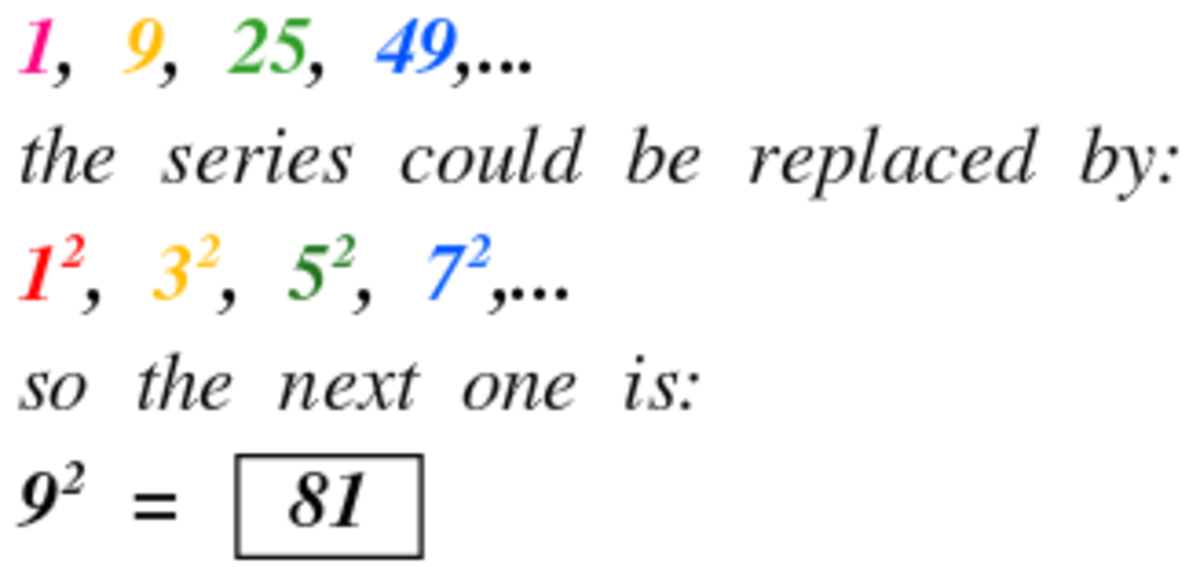This section requires Javascript.
You are seeing this because something didn't load right. We suggest you, (a) try
refreshing the page, (b) enabling javascript if it is disabled on your browser and,
finally, (c)
loading the
non-javascript version of this page
. We're sorry about the hassle.
8 solutions
it can also be square of odd prime number so it may be 11x11=121
By subtracting the given sequence by 1 it will be
1 − 1 , 9 − 1 , 2 5 − 1 , 4 9 − 1
0 , 8 , 2 4 , 4 8
0 × 2 , 2 × 4 , 4 × 6 , 6 × 8
The next number - 1 = ( 6 + 2 ) × ( 8 + 2 ) = 8 0
So the answer is 8 1
1^2,3^2,5^2,7^2,9^2.........
There should have been one more given to be able to tell if it was sequential odd numbers squared, or sequential prime numbers squared.
1,9,25,49
difference between 1 and 9 is 8 difference between 9 and 25 is 16 difference between 25 and 49 is 24
The pattern continues with adding the next multiple of 8... 32 Thus the answer is 81.
Interesting that you most everyone else dealt with them as squares of odd numbers.
Square of odd numbers, Startingfrom 1. ;1^2=1; 3^2=9; 5^2=25; 7^2=49; 9^2=81.
This problem is wrongly posed. The sequence is composed of the squares of odd numbers, but all the numbers are also prime, so 121 is an equally good answer. The formulation of the problem is not well-constrained.
Agree, the sequence is too short to make a sure assumption.
1 is NOT a prime number
The problem would have to be
9, 25, 49
Then 81 and 121 could both the valid answers

1x1=1, 3x3=9, 5x5=25, 7x7=49, 9x9=81 Multiplying using odd number 1, 3, 5, 7, 9 with the same number